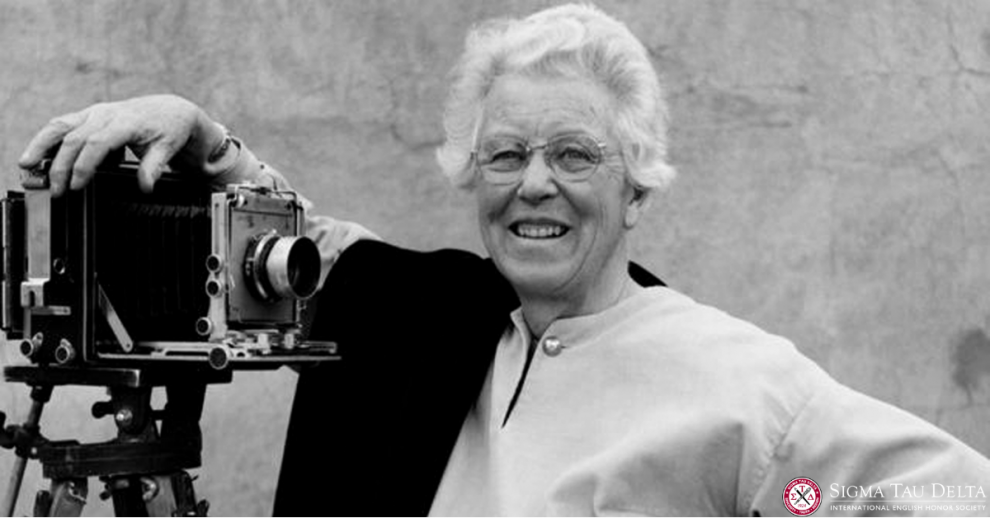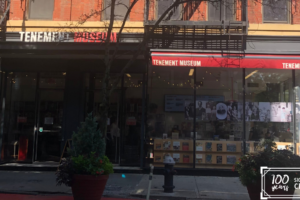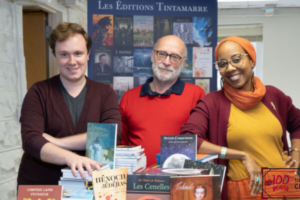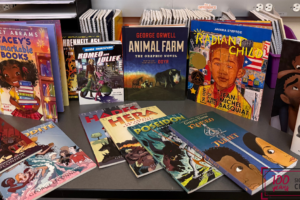Last summer, I was privileged enough to be the recipient of a Sigma Tau Delta Internship Stipend. Earlier this year, I was invited to be a research assistant for Joy Sperling in the Art History and Visual Culture department at Denison University. Sperling is currently writing a book about the lives and art of women artists in southwest America in the 20th century. The most famous of the artists associated with the Southwest is Georgia O’Keefe. Though O’Keefe is an amazing artist, Sperling wanted to reframe the narrative and share the stories of other women artists of the southwest, mostly New Mexico.
The artists that Sperling’s book will focus on are not undiscovered; the effort of her book is not to salvage and “rediscover” these women artists. Rather, the aim of writing about the women artists is to bring them out from the shadows that they were hidden in. Sperling’s book will emphasize how these women artists changed the course of American photography, museums, and galleries. Through the Sigma Tau Delta Internship Stipend, I was able to have a front row seat into the Southwest women artists project.
Sperling has been collecting materials for what seems like a lifetime. Her research about these women artists has taken her to New Mexico, Navajo nation, and Pueblo nation. One of the artists, Laura Gilpin, was a photographer for Boeing. Her work won numerous awards. Because of the nature of the gallery and art world in the 20th century, Gilpin, a female photographer, could not compete with the systemic patriarchy rampant through the art world. Sperling’s research, which I was so lucky to be a small part of, reframes the narrative of the art world through storytelling. Paging through resource collections of news clippings and photocopies was like holding archives in my hand. My daily contact with artists like Laura Gilpin was learning the ways in which they changed the art world forever.
The English enthusiast and language lover within me continuously reflected on the ways in which the control of narrative, storytelling, and language were integral to Sperling’s research. Each day, I engaged with language that perpetuated narratives of systemic patriarchy. The newspapers Gilpin was featured in were edited by men; the articles written about the women artists were authored by men. The subtlety of a patriarchal narrative weaved through the materials where Gilpin’s works were displayed. With the critical thinking skills of an English major and language enthusiast, I helped to reframe the narrative, gathering evidence of Gilpin’s mark on the art world. Criticism and praise found in archival material had to be categorized and sourced. Through bibliography work and intricate understandings of narrative and storytelling, I was able to develop new abilities and ways in which to see the world.
Through the generous support of Sigma Tau Delta, I was able to experience the process of storytelling and the power weaved within the process. Researching Laura Gilpin, other women artists of the Southwest in the 20th century, and contributing to Sperling’s book, if even in a small way, guided me through a deeper understanding of language and storytelling. The support from Sigma Tau Delta allowed me a unique step into the start of my career as a language enthusiast and specialist.
 Bridget Koerwitz
Bridget Koerwitz
2020 Summer Internship Stipend Recipient
Alpha Lambda Theta Chapter
Denison University, Granville, OH
Internship Stipend
Sigma Tau Delta offers funding for current undergraduate and graduate student members accepting non- or low-paying internships. The Internship Stipend is a competitive program providing a limited number of stipends of up to $1,500 each.
The internship must involve working for an “organization” while being directed by a supervisor/mentor within that organization, and the intern’s duties must be consistent with the applicant’s level of education, area of study, and career goals. Financial need will be taken into consideration in addition to internship length. Applicants are responsible for obtaining and providing verification of the internship. Please review the application guidelines for additional information.
The internship stipend does not apply to activities that are part of a student’s degree requirements, such as student teaching, and cannot be used to supplement a graduate assistantship.
Applications will be accepted Monday, April 12 through Monday, April 26, 2021, 11:59 p.m. Central Daylight Time (CDT). Notifications will be made by May 25. Questions regarding the online submission process should be addressed to sigmatdapply@niu.edu.
Resources
To Be the Practical or the Spark; That is the Question
The Price of an Unpaid Internship
My Internship at the LARB Publishing Workshop
An English Major on Capitol Hill
Spring Internship Stipend Applications Due Soon
Writing Internship for AGAPE
McIntosh & Otis Internship: Preparation for a Dream Career
An Eye-Opening and Goal-Affirming Internship: My Time with Penn Press
My Indie Summer Internship at Wise Ink
Winning an Internship with About.com
More from Footnotes: March 16, 2021
Why You Should Attend Convention
The Value of Joining Student Leadership
NCTE Communications Internship
Apply for Spring Scholarships






Add Comment